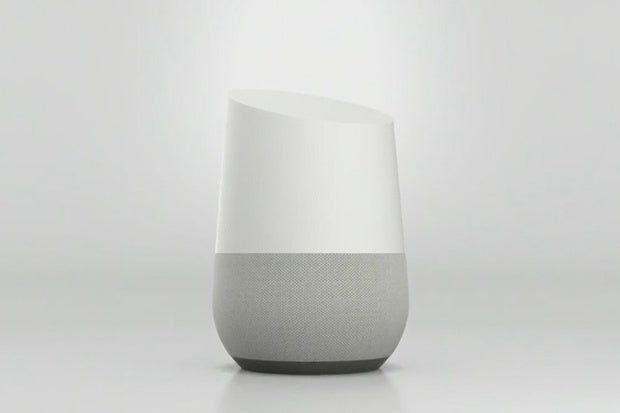
Voice-activated virtual assistants for the home are all the rage these days. The credit lies largely with Amazon, which was the first big company to take the concept of talking to technology and squeeze it into a pretty little cylinder for your counter.
Amazon called its creation the Echo, and lots of folks have raved about how futuristically cool it is. I never got one, personally, as the Echo revolves around Amazon’s own ecosystem — and as someone who’s pretty thoroughly invested in the Google ecosystem at this point, its usefulness would be rather limited to me.
You can imagine, then, my interest when Google announced its answer to the Echo — the Google Home tabletop assistant, unveiled at the I/O developers’ conference earlier this spring and set to launch sometime later this year. Google Home is a cute little air-freshener-looking contraption that responds to your voice and lets you ask questions, interact with Google apps and services, and control things like music and video playback simply by speaking.
 Google
GoogleLet’s see: I rely heavily on Google apps and services. I live in a home. I enjoy convenience. No wonder my initial reaction was: “Hey, what’s not to like?”
But then I got to thinking about it more closely — and also thinking about the idea of a home-based virtual assistant gadget in general, be it from Google, from Amazon, or even from Apple (if/when its alleged attempt at the genre ever actually surfaces). And I realized there’s one thing I’ve yet to figure out about all of these types of products:
What do they actually do that my phone — and every other Android device in my house — doesn’t already do just as well?
And I’m not sure I have the answer.
The main brain of Google Home is something Google calls the Google Assistant. It’s basically an expanded and rebranded version of the voice control system we have in Android now (all the “OK, Google…” goodness), with even more focus on conversational interaction.
The Google Assistant won’t be limited to Google Home, though. The same expanded system will be coming to regular Android devices as well — phones, smartwatches, the whole shebang.
When you walk in the door of your house, you should continue to have access to the Google Assistant and interact with it in a hands-free way, simply using your voice, without having to take out your phone.
So the main benefit of Google Home, then, is that it allows you to do the same voice command stuff you could do on your phone — without having to take out your phone. That’s it?
Google Home does appear to have some capabilities regular Android devices don’t currently enjoy — like being able to send music to a Chromecast using only spoken words. But again, remember: The same expanded voice control system will be coming to regular Android devices as well. The whole point of Google Assistant is that it’ll work seamlessly across all devices, with your own personal preferences and account specifics remaining intact.
The “simpler access to stuff your phone does” argument has some merit on a smartwatch, which can be useful when you’re out and about in the world and unable to handle your phone with ease. I wouldn’t consider that type of technology essential, by any means, but in some situations — like when dealing with incoming messages while walking through an airport, for instance — it can genuinely be convenient.
At home, though, most of us always have our mobile devices nearby. I don’t know about you, but “taking out” my phone has never been a major problem whilst in the comfort of my abode; more often than not, it’s already sitting out on a table somewhere nearby. So where’s the need for a separate and stationary gizmo that also responds to my voice in this scenario? What problem is being solved?
Maybe I’m missing something, but couldn’t you just put a hollow cylinder over your phone, set it on a table, and have the same basic thing that Google Home will provide? Throw a Bluetooth or Cast-connected speaker somewhere for music playback, if you want, and call it a day.
The idea of an intelligent voice-controlled assistant for the home certainly sounds futuristic and appealing — but for now, at least, this sort of gadget seems strangely superfluous. The whole progression actually feels a bit backwards: You’d think these home devices would have come along first and then faded into obsolescence when everyone started carrying personal smartphones that offered the same functionality.
Novelty is nice for a while, but unless these products find a way to do something beyond what our existing devices already do, I’m just not sure how they’ll add lasting and meaningful value to our lives. Maybe one day, the Google Assistant will figure out that answer.
[Source:CW]
